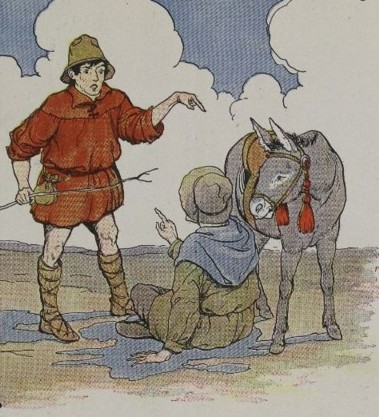PART A_1
Let’s learn vocabulary. Listen and repeat the words and the sentences with your tutor.
PART A_2
| 1. engagement | /in-GEYJ-ment/ |
| -the fact of being involved with something | |
| Her school engagements prevent her from doing household chores. | |
| 2. tend | /tend/ |
| -to often do a particular thing or be likely to do a particular thing | |
| She tends to be more cautious now due to her past experiences. | |
| 3. specific | /spe-SIF-ik/ |
| -used to refer to a particular thing and not something general | |
| The local government should be more specific in laying down guidelines to avoid confusion. | |
| 4. guilt | /gilt/ |
| -a feeling of shame or unhappiness when you have done something wrong | |
| She felt a bit of guilt when she did not attend the class for no justifiable reason. | |
| 5. accountable | /a-KAWN-te-bl/ |
| -responsible for what you do and having to be able to explain your actions | |
| The government should be held accountable for its actions as the public office is embraced with public trust. |
PART B_1
Let’s read the article. Please read it aloud, and I will check your pronunciation and intonation.
PART B_2
Ways to Achieve Your Goals
Every year, each of us tries to promise ourselves that we will achieve a goal—may it be in one’s career, health, lifestyle, etc. However, we may get busy with our other engagements, thus, we tend to do little to no action to achieve our goal. We won’t notice but the year is about to end again and a lot of time has passed. This may also give the feeling of guilt. In order to avoid this, here are some tips on how one can achieve his/her goal. Identifying specific goals will make it easier for you to know what are tasks to focus on. Writing it on a piece of paper is also helpful as it will get the goal out of your brain into the physical world. It will also serve as a reminder for you from time to time. Telling a friend is also beneficial as it will hold you accountable for your progress and it will add pressure on you. If you have big goals, you should break them into small ones to make them more realistic and achievable. Some experts also say that it is important to reassess your goals from time to time to tailor them according to the changes that might have happened in your life. Lastly, it is not the goals, but its pursuit that keeps us going day by day. Thus, we should make sure that we are getting the best out of every experience.
PART C_1
Let’s answer comprehension questions. Please answer them based on the article.
PART C_2
| 1. | Why do we tend to do little to no action to achieve our goal? |
| 2. | Why is it important to identify specific goals? |
| 3. | How is telling a friend beneficial in achieving our goals? |
PART D_1
Let’s discuss the article. Please answer the questions below and express your opinions.
PART D_2
| 1. | What do you think are the things that hinder a person to achieve his/her goals? |
| 2. | What kind of changes might occur to one’s life which will require him/her to adjust his goals? |
| 3. | Why do you think is it important to make our goals as realistic as possible. |
| 4. | In the pursuit of goals, how do you think one can enjoy the process? |
| 5. | What personal goals do you have? Please tell me more about it. |
REVIEW AND FEEDBACK
Now, let us review the things that you learned in this lesson.
ではこのレッスンで学んだことを振り返りましょう。
(Please give a short feedback on how your student did in your class.)
| Grammar 文法 |
Pronunciation 発音 | Vocabulary 単語 |
Comprehension 理解 |
|
|---|---|---|---|---|
 GOOD GOOD |
文法の誤りはほとんどなく、完全な文章で話すことができる | ほとんどの単語をはっきりと正しく発音することができる | 習った表現を適切に使うことができる | 文章を理解し、質問に正しく答えることができる |
 FAIR |
文法の誤りはあるが、完全な文章で話すことができる | 発音の練習が必要な言葉がいくつかある | たまにミスはあるが、習った表現を適切に使うことができる | 文章を完全に理解するのは難しく、質問に正しく答えられないときもある |
 POOR |
文章で話すのは難しく、単語だけで話すことができる | 発音の練習が必要である | 習った単語と表現を少しだけ使うことができる | 文章を理解するのは難しく、質問に答えるのは難しい |




